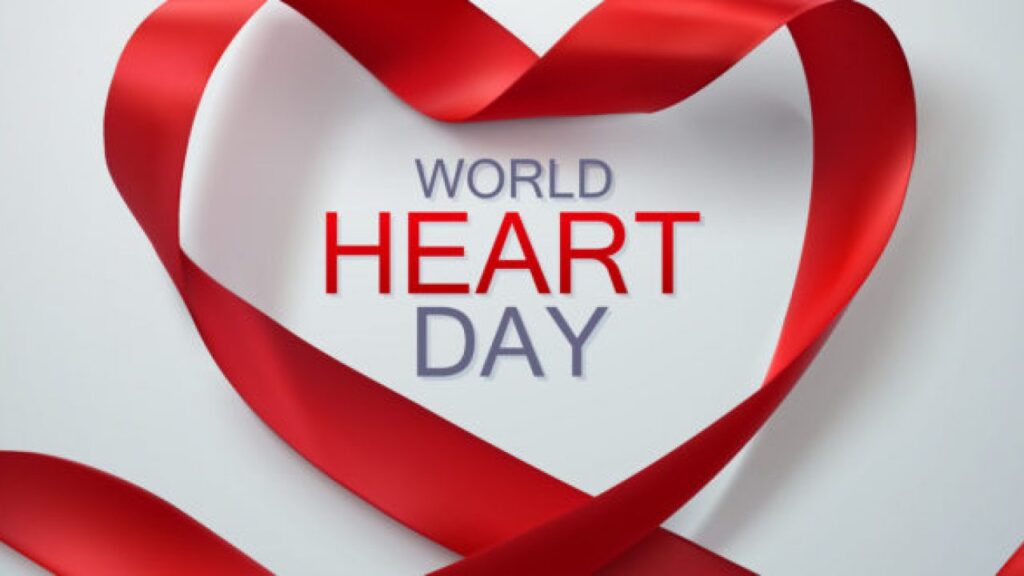
World Heart Day, observed on September 29th each year, is an important global campaign dedicated to raising awareness about cardiovascular diseases (CVDs) and promoting heart-healthy habits. This initiative, organized by the World Heart Federation, aims to reduce the impact of heart disease and stroke, which remain the leading causes of death worldwide. In this comprehensive article, we will delve deeper into the significance of World Heart Day and explore effective ways to maintain a healthy heart.
- Understanding the Importance of World Heart Day: World Heart Day serves as a powerful platform to educate individuals, communities, and governments about the risks associated with cardiovascular diseases. It sheds light on the importance of prevention strategies, early detection, and proper management of heart-related conditions. By raising awareness, World Heart Day empowers people to adopt heart-healthy lifestyles and prioritize their cardiovascular well-being.
- The Global Burden of Cardiovascular Diseases: Cardiovascular diseases encompass a wide range of conditions affecting the heart and blood vessels. These include coronary artery disease, heart attacks, stroke, heart failure, arrhythmias, and hypertension. According to the World Health Organization (WHO), CVDs account for nearly 18 million deaths each year, accounting for one-third of global mortality. World Heart Day plays a crucial role in emphasizing the need for preventive measures and comprehensive management strategies.
- Risk Factors for Cardiovascular Diseases: Several risk factors contribute to the development of cardiovascular diseases. Some of the key modifiable risk factors include unhealthy diets, physical inactivity, tobacco use, excessive alcohol consumption, and unmanaged stress. Genetic predisposition and certain underlying medical conditions also increase the risk. World Heart Day provides an opportunity to educate individuals about these risk factors and encourage positive changes in their lifestyles.
- Promoting Heart-Healthy Lifestyles: One of the primary objectives of World Heart Day is to motivate individuals to adopt heart-healthy behaviors. Engaging in regular physical activity, maintaining a balanced diet, avoiding tobacco use, managing stress, and limiting alcohol consumption are crucial steps toward preventing cardiovascular diseases. On this day, numerous events and activities are organized worldwide to promote these behaviors. These may include public health campaigns, free health screenings, educational workshops, fitness programs, and healthy cooking demonstrations.
- The Role of Nutrition in Cardiovascular Health: A well-balanced and nutritious diet plays a vital role in maintaining a healthy heart. Consuming a variety of fruits, vegetables, whole grains, lean proteins, and healthy fats helps reduce the risk of heart disease. Avoiding processed foods, excessive salt, added sugars, and unhealthy fats is equally important. On World Heart Day, it is essential to educate individuals about the impact of nutrition on cardiovascular health and provide practical tips for making heart-healthy food choices.
- Physical Activity and Heart Health: Regular physical activity is crucial for cardiovascular health. Engaging in exercises such as brisk walking, jogging, cycling, swimming, and strength training helps strengthen the heart, lower blood pressure, improve circulation, and maintain a healthy weight. World Heart Day emphasizes the importance of physical activity and encourages individuals to find enjoyable ways to incorporate exercise into their daily routines.
- The Role of Stress Management in Heart Health: Unmanaged stress can significantly impact heart health. Chronic stress contributes to high blood pressure, increased heart rate, and unhealthy coping mechanisms such as overeating or smoking. World Heart Day highlights the importance of stress management techniques like mindfulness, meditation, yoga, and engaging in hobbies to promote emotional well-being and reduce the risk of cardiovascular diseases.
- Spreading Knowledge and Education: Education plays a pivotal role in preventing and managing cardiovascular diseases. World Heart Day encourages healthcare professionals, organizations, and communities to disseminate accurate information about heart health. This includes providing resources, conducting seminars, engaging in public discussions, and leveraging digital platforms to address misconceptions and promote evidence-based practices for cardiovascular care.
- Collaborating for a Heart-Healthy World: World Heart Day fosters collaboration among various stakeholders, including healthcare providers, policymakers, non-governmental organizations, and the general public. By working collectively, these entities can develop effective policies, improve healthcare systems, create supportive environments, and implement community-based initiatives that promote heart-healthy behaviors. Collaboration is key to creating a sustainable and impactful change in cardiovascular health globally.
Conclusion: World Heart Day serves as a global reminder of the importance of cardiovascular health. By raising awareness, promoting heart-healthy lifestyles, and fostering collaborations, this annual event strives to reduce the burden of cardiovascular diseases worldwide. On this day, let us all join hands and make a commitment to prioritize our heart health, leading to a healthier and happier future for individuals and communities alike.

